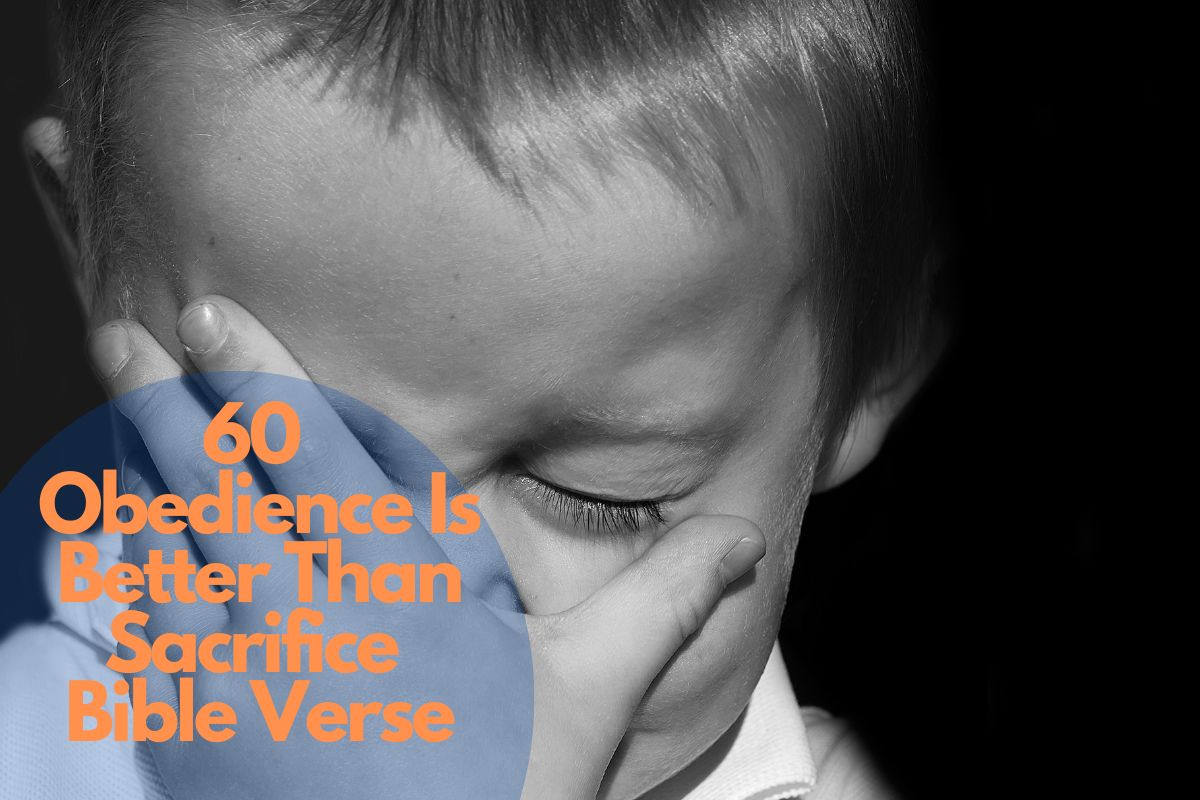Most people are not aware of the meaning of DNA in the Bible. I’ve been studying this topic for quite some time now and want to share my knowledge with you today.
DNA is a unique class of genetic elements that contain traits passed down from parents to offspring. It is the molecule responsible for our appearance, bodily processes, and the development of illness. As a result, it is a crucial part of the Bible.
One of the most crucial pillars for comprehending what DNA signifies from a biblical perspective is laid out in the Bible. Therein, we’ll concentrate on a few biblical teachings that have relevance for today’s DNA research and application.
DNA in the bible
The Bible is full of references to DNA. For example, Genesis 2:7 tells us that God planted a garden on the Earth and made a man from it. In verse 23, God said, “This is now bone of my bones and flesh of my flesh; she shall be called woman because she was taken out of Man.” This can be interpreted as saying that Eve was created from Adam’s DNA.
Another reference in the Bible is found in Genesis 9:20 where Noah is told to bring two of every kind into the ark. This can be interpreted as meaning that Noah took two of every species and brought them aboard the ark to repopulate the planet after a flood had wiped out most life forms prior to this event occurring (Genesis 6:3).
The DNA in the Bible is a reference to DNA. The first chapter of Genesis tells the story of how God created humans and gave them instructions for living. In this story, God says “Let us make man in our image, after our likeness: and let them have dominion over the fish of the sea, and over the fowl of the air, and over the cattle, and over all the earth, and over every creeping thing that creepeth upon the earth.” (Genesis 1:26-28)
This means that humans were given dominion over all other animals on earth. The first part of this commandment is called “dominion” because it means that humans are allowed to have power over other animals. They can use their power to protect themselves from predators or to take care of their own needs. This commandment also includes authority over everything else that lives on earth: fish, birds, insects, reptiles—even plants!
The Bible contains 6 verses that mention DNA. These verses are as follows:
Genesis 1:26-27 KJV
And God said, Let us make man in our image, after our likeness: and let them have dominion over the fish of the sea, and over the fowl of the air, and over the cattle, and over all the earth, and over every creeping thing that creepeth upon the earth. So God created man in his own image, in the image of God created he him; male and female created He them.-Genesis 1:26-27 KJV
In this passage, God creates man and woman from the dust of the ground (Genesis 2:7). God then causes them to be male and female. This is done so that they may have children and continue their species (Genesis 2:18). It is important to note that the first verse mentions “male and female” in relation to man, not a woman. This indicates that there was no female human being yet created. Rather, it was only a single kind of human being—male or female—that was created for the purpose of procreation.
Genesis 9:1-3 KJV
And God blessed Noah and his sons, and said unto them, Be fruitful, and multiply, and replenish the earth. And the fear of you and the dread of you shall be upon every beast of the earth, and upon every fowl of the air, upon all that moveth upon the earth, and upon all the fishes of the sea; into your hand are they delivered. Every moving thing that liveth shall be meat for you; even as the green herb have I given you all things.-
Genesis 9:1-3 KJV
This verse describes how Noah’s sons were born after he became an old man, but before he died . The passage also says that these sons were born to his wife because she was barren. This suggests that both men and women could be sterile at some point in their lives, which would make it more likely for them not to be able to have children later on in life.
The Bible is a collection of books written by anonymous authors over thousands of years. The oldest parts of the Bible are from around 900 B.C., but the most well-known parts were written during various periods between about 400 B.C. and 100 A.D.
The collection as it exists today came together in what is now called the Masoretic Text, which was created by Jews who lived in Babylon more than 2,000 years ago (though some Arab Jews have also contributed to this version).
This text consists of 22 books: Genesis, Exodus, Leviticus, Numbers, Deuteronomy, Joshua, Judges, Ruth, 1 Samuel and 2 Kings; 1 Chronicles; 2 Chronicles; Ezra; Nehemiah; Esther; Job; Psalms; Proverbs; Ecclesiastes; Song of Solomon; Isaiah; Jeremiah; Lamentations; Ezekiel; Daniel (the Revelation of John follows these last four books).
The Roman Catholic Church has an official canon (that is, a list of all officially recognized books) that includes 1 Timothy 2:15-16 and 3:16-17 as part of its Old Testament canon.
What does DNA mean in the Bible?
DNA is a group of molecules that carry genetic information in all organisms. In humans, DNA carries the instructions for making proteins.
In the Bible, DNA has been used to describe the entire genetic code that makes up an organism or a species (Genesis 1:11; Genesis 5:1).
DNA is a nucleic acid that contains the genetic code for making proteins. It’s found in all living cells, and it contains the information that allows each cell to function.
Genesis 1:27 describes God as creating “every plant of the field before it was in the earth and every herb of the field before it grew,” which means he created every living thing from its seeds.
In Genesis 1:21-22, God states that he filled all plants with “the breath of his mouth” (the Hebrew word for breath is ruach). This could mean that he breathed life into them, or maybe he filled them with his own spirit, or both!
DNA is the genetic code in the cell. The Bible makes reference to this code several times. In Genesis 1:27, God created man and woman in His image. He made them male and female. This means that each person is a unique combination of both their father’s and mother’s DNA.
In Leviticus 26:12, Moses tells the Israelites that they are commanded to love their neighbor as themselves; this means that you should treat others with respect because they have the same DNA as you do.
In Romans 3:23-24, Paul says that everyone has sinned and fallen short of God’s glory; this means that we all have something wrong with us due to our inherited DNA.
What is God’s DNA
What is God’s DNA?
The Bible says that God is all about love. He loves you, and he loves your neighbor. But what does this look like in real life? Well, if you’re a Christian, that’s where I come in. I’m going to help you find out—and then we’ll go out and spread the word!
God’s DNA is one of the most important things to understand about God. If you want to know more about God, you have to understand what He is made of. There are a lot of different religions out there that claim to know God, but they all miss something very important: God’s DNA.
God’s DNA is that which makes us who we are, and it’s the same thing that makes all people on planet Earth special. It’s what makes us different from each other—and it’s what makes us all similar in some ways too!
The Bible has a lot to say about God’s DNA. The Bible says that God is the “I Am,” and that he created everything in six days. He also says he had no beginning or end.
The Bible also says that God is spirit, which means he doesn’t have a body, but rather his entire essence is contained within himself.
God has no gender because he is beyond our understanding, so we can’t say for sure what his gender identity is. However, we do know that he’s not male or female because those are human concepts based on what we understand about ourselves, which isn’t necessarily true for God.
What does God say about DNA?
In Exodus 20:11, we read that God says that “there is no one like Him.” This is a very important verse to remember when you’re studying your own DNA.
The Bible tells us that the number of our DNA molecules is critical to who we are. Let’s say you have two identical twins, except one has blue eyes and the other has brown eyes. If their DNA was the same, then it would be easy to say that they are identical (which means “exactly alike”). But if their DNA was different, then it would mean that they weren’t identical—they were unique individuals with different characteristics. And if you think about it, this makes sense: Your DNA is code for your entire body and all its characteristics!
In fact, if you look at some of the verses in Genesis 1:26-27 (which describes creation), you’ll notice something interesting about human beings: We’re created in God’s image (that means we have His characteristics). So not only do you have your own unique set of genes from which everything else in your body comes from, but they come directly from God Himself!
In the Bible, God says that we are made in His image (Genesis 1:27). This means that every human being on earth has a DNA.
What is the DNA of Jesus?
The DNA of Jesus is not a new discovery. It has been known since the early 1900s that Jesus was Jewish. In fact, there are many people who believe that he was one of the twelve disciples of the Christ. The Bible even mentions his genealogy and the fact that he was born in Bethlehem.
The question is: who was Jesus? He lived during the time of Emperor Augustus, who ruled from 27 BC to 14 AD. At this time, there were many revolts against Rome including those led by Simon Bar-Kochba and Judas Maccabeus. These two rebellions were unsuccessful because they were crushed by Roman armies led by Titus Flavius Vespasianus (who later became Emperor Vespasian).
In fact, historians believe that Jesus may have been a man named Yeshua Ben Yosef who lived during this time period in Judea (modern-day Israel). This is based on his genealogy which lists him as having a father named Joseph and a mother named Miriam.
There are also some theories about what happened to him after his death on Good Friday 33 AD at Calvary located near Jerusalem where he was crucified between two criminals.
Jesus’s DNA is the same as yours.
Jesus was born of a virgin named Mary, and he had two brothers: James and Joseph. He grew up in Nazareth, which is in Galilee, but he wasn’t Jewish. Jesus spoke Aramaic, not Hebrew or Greek. His parents didn’t have any slaves or servants at their house—they lived a very simple life.
After Jesus was baptized by John and told about God’s plan for him to die for others’ sins, he went back to Galilee and started preaching about God and what it means to be good people. He was constantly being called “Son of God,” but he said that wasn’t true because only God can create a person from nothingness ( Genesis 1:1-2 ).
The Bible says that people began following Jesus after he spoke about his ministry during a Passover meal with his apostles ( Luke 22:14-20 ).
What does the bible say about our DNA?
The Bible, as we all know, is a book of God’s word, and it’s full of many different things. One thing that the Bible says about our DNA is that we’re all more related to each other than we are to chimpanzees.
We’re not just related through our parents—we’re also related to each other through what we eat and how we use language. Another thing that the Bible says about our DNA is that it’s a work in progress—we’ve been changing since the beginning of time.
We’ve gone from people who lived in caves to people who live in cities today. We’ve gotten smarter and more capable over time, but we still have some catching up to do!
DNA is one of the most important parts of who we are as individuals. The Bible speaks about DNA:
Genesis 1:20-21 KJV
“The LORD God made everything, and he made each thing of its kind. He made all the animals of the earth and everything that creeps on the ground—each one to live wherever it can live” –
Genesis 1:20-21 KJV
The Bible says that God created humans in His image. That means we are all a little bit God-like, and that’s a good thing! We are all made in God’s image. This means that our DNA is special, just like it was for Adam and Eve before the Fall (Genesis 3:15). Our DNA is designed to make us who we are—it’s what makes us who we are.
This also means that our DNA has been designed by God to help us survive on this planet. We all have special talents and abilities because of our DNA (Psalm 139:14), and these talents are all part of who we are as humans.
When you read the Bible, it should be clear to you that God loves each person He created—He created them by Himself and loves them as Himself (John 10:30).
Altered DNA in the bible
In the Book of Genesis, God tells Noah that he will make his descendants into a great nation. The first chapter of the Book of Genesis is called “The Generations of Noah.” In it, God instructs Noah to build an ark and to take two of every kind of animal on Earth. When the time came for Noah to enter the ark, he saw a rainbow in the sky, which symbolized that God would never again send a flood to destroy all living things.
In Genesis 5:1-2, we read that after Noah’s death, his son Ham was cursed by his father Ham’s wife because she had seen something inappropriate between her husband and her father’s concubine. Then in verse 9, we read that Shem fathered Japheth who fathered Gomer who became the mother of Ashkenaz (who was renamed Phut), Canaan (who was renamed Mizraim), and Gozan (who was renamed Havilah).
In Genesis 10:21-24, we learn about Abraham’s wife Sarah and how she bore him Isaac who was born at age 90. According to Jewish tradition, Abraham lived 250 years before Isaac was born; so according to this Scripture Isaac would have been born around 1500 BCE.
The Bible is full of references to altered DNA, both on earth and in heaven. There are many examples of this throughout the Bible, but here are a few:
In Genesis 1:28-29, God created humans with his own image and likeness in their minds and hearts, including that of a male and female. This verse also says that they were “created in God’s image.”
In Genesis 9:6-7, Noah was given instructions on how to build an ark for the purpose of saving himself and his family from a flood. When Noah obeyed these instructions, he was allowed by God to live until he had taken care of all life on earth.
In Leviticus 26:1-4, Moses was instructed by God about how to sacrifice animals for himself and for the people who would be following him after he left Egypt because of the plague there.
In Luke 6:31-36 and Matthew 19:19-21, Jesus speaks about how we should treat our enemies and those who hurt us. He also tells us that we should love our neighbours as ourselves and treat them with kindness (Matthew 19:19). In verses like these—and many more—we can see.
DNA change in the Bible
The Bible is a good source of information about DNA, but it doesn’t have any direct references to genetic changes. It does, however, mention the concept of “change” in several places.
For example, Genesis 1:11 says “And God said, ‘Let the water under the sky be gathered into one place and let dry ground appear.'” This passage could be interpreted as meaning that God created all the different species of plants and animals from one original pair.
But if we look at Genesis 2:7–3:24, we find that in this part of the creation story, some plants were created before others—and there were no animals yet. So it seems like this passage doesn’t describe how all plants and animals came to be; instead, it describes how some plants and animals came to be.
The Bible is a book that has been around for thousands of years. It was first written in Hebrew and then translated into Greek, Latin, and other languages. The Bible is the most important tool we have to learn about God’s plan for us.
The Bible tells us about God’s plan for our lives and what we should do in order to be happy. The Bible also contains instructions for how to live as a Christian, including prayer and worship.
The Bible tells us about the importance of being good to each other, helping those in need, and obeying God’s commands. The Bible also tells us about sin and explains what happens when we disobey God’s commands.
What does the bible say about altering your DNA?
The Bible does not explicitly forbid you from altering your DNA, but it does say that you should be careful.
Genesis 2:21-23 KJV
And the Lord God caused a deep sleep to fall upon Adam, and he slept: and he took one of his ribs, and closed up the flesh instead thereof; and the rib, which the Lord God had taken from man, made he a woman, and brought her unto the man. And Adam said, This is now bone of my bones, and flesh of my flesh: she shall be called Woman, because she was taken out of Man.-
Genesis 2:21-23 KJV
This passage makes it clear that God created Eve from Adam’s rib—and that Eve was given to him as his wife. The Bible also says in Genesis 1:27 that God created Eve for Adam’s pleasure (verse 26). This means that there was no other purpose for Eve’s creation besides being a wife for Adam.
Genesis 3:16-17 KJV
Unto the woman he said, I will greatly multiply thy sorrow and thy conception; in sorrow thou shalt bring forth children; and thy desire shall be to thy husband, and he shall rule over thee. And unto Adam he said, Because thou hast hearkened unto the voice of thy wife, and hast eaten of the tree, of which I commanded thee, saying, Thou shalt not eat of it: cursed is the ground for thy sake; in sorrow shalt, thou eat of it all the days of thy life;
Genesis 3:16-19 KJV
Genesis 3:16-19 says that because of Eve’s disobedience (which included eating from the tree of knowledge), “Your desire shall be to your husband, and he shall rule over you.” It also says in chapter 4:1-2 that because of this sin against God.
The Bible is clear on the issue of genetic modification. Genesis 2:7 says, “But the Lord God formed man from the dust of the ground, and breathed into his nostrils the breath of life; and man became a living being.”
In Genesis 3:19, we are told that Adam named his wife Eve because she was “the mother of all living.” This indicates that those original humans were made in God’s image, and their DNA is preserved in us today.
The second book of Moses tells us that God gave Noah and his family two of every animal on earth to feed themselves after the flood. This means that there are no other methods of creating animals or plants besides natural reproduction—and it also means that we must not tamper with our own DNA or environment to make these animals or plants appear.
Where did Jesus get his DNA from?
The Bible has a lot to say about who Jesus is, what he did, and how we should live. But one thing is clear: Jesus was not a Jew. He had no Jewish blood. In fact, the Bible says that even though God had chosen Abraham as his father in Genesis 17:5-6, he also chose Isaac over Ishmael (Genesis 21:1). So even though Jesus was born into a Jewish family, his DNA wasn’t Jewish.
So where did Jesus get His DNA from? The answer is simple: God!
What is our spiritual DNA?
In the Bible, John 14:6 says, “I am the way, the truth, and the life. No one comes to the Father except through Me.”
These verses show us that we can find our spiritual DNA through Jesus Christ. We are created in His image and are part of Him. He is our true identity and the way we can connect with Him.






